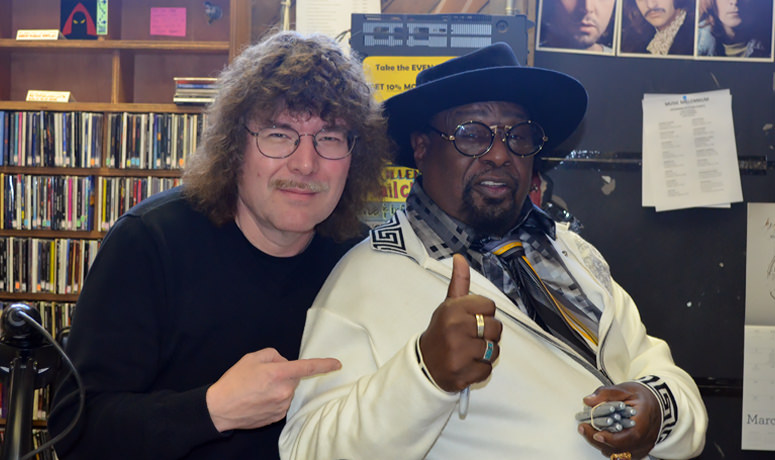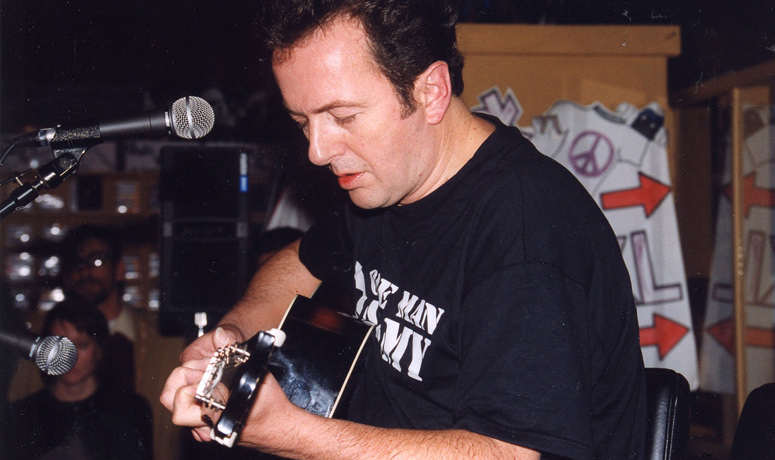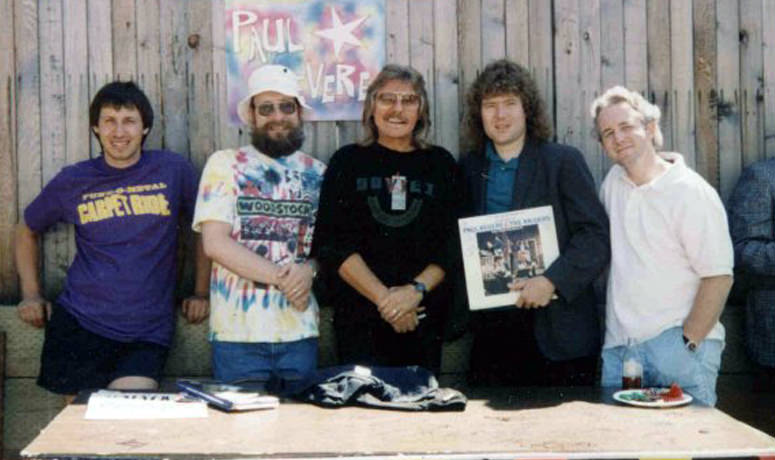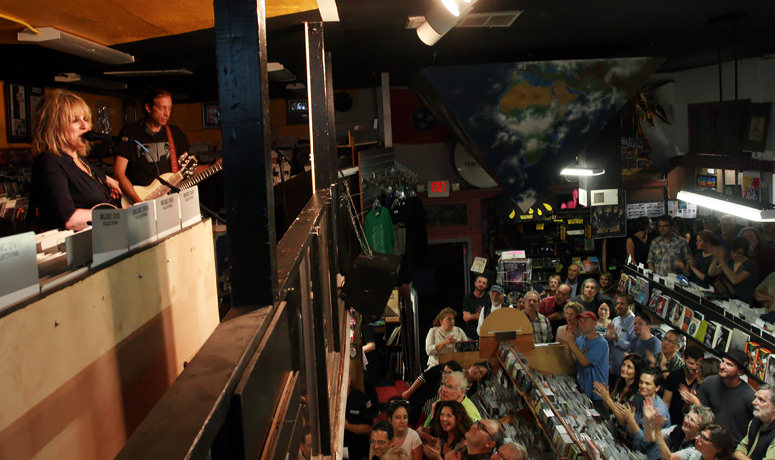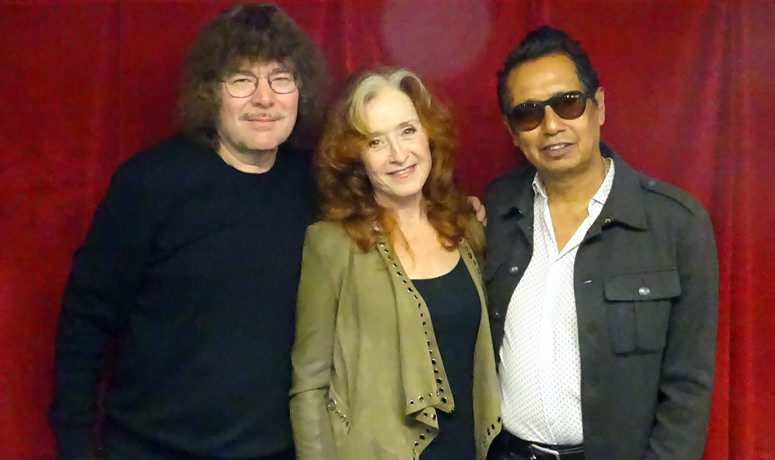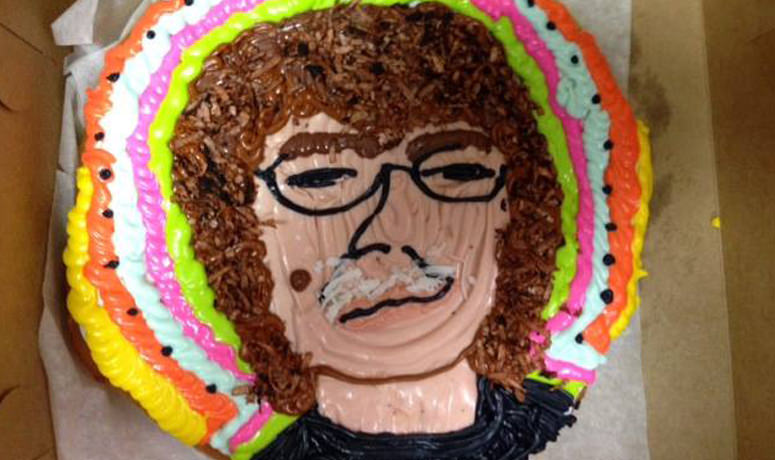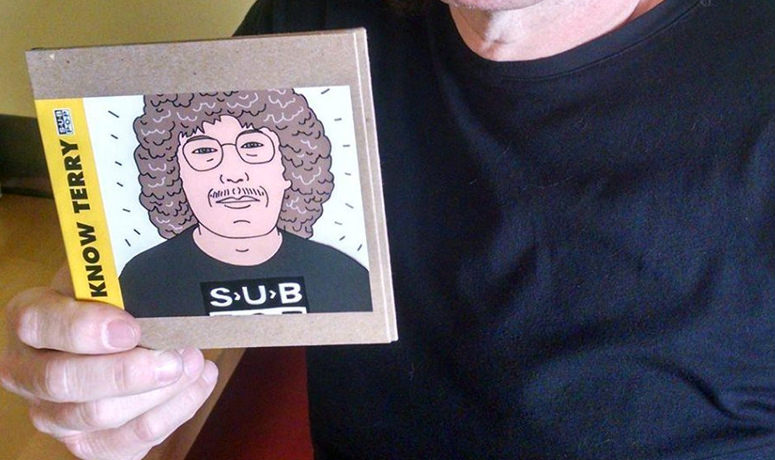Upon first entering Music Millennium on East Burnside Street, it’s not immediately clear you’ve stepped into another realm — but you have.
This is the world of Terry Currier, proprietor of Portland’s legendary record store, which the Oregonian has named the best in the city. His world isn’t flashy — it looks like a cozy yet expansive above-ground basement, where band paraphernalia plasters the walls, artist logos adorn CD-rack dividers and rows upon rows of vinyl records lie in wait for the next set of ears to discover.
Upon meeting the man himself, another thing isn’t immediately clear: Currier is a superhero but not the type you might expect. He’s known to skip the cape in favor of jeans and tees, and his superpower isn’t obvious. But chat with him here in his lair and you’ll recognize it within minutes: His power is an encyclopedic knowledge of and unadulterated love for contemporary music, particularly on vinyl.
Currier puts that power to good use here in Portland, where his influence transcends the city limits of a metropolis known as an epicenter of alternative-music culture.
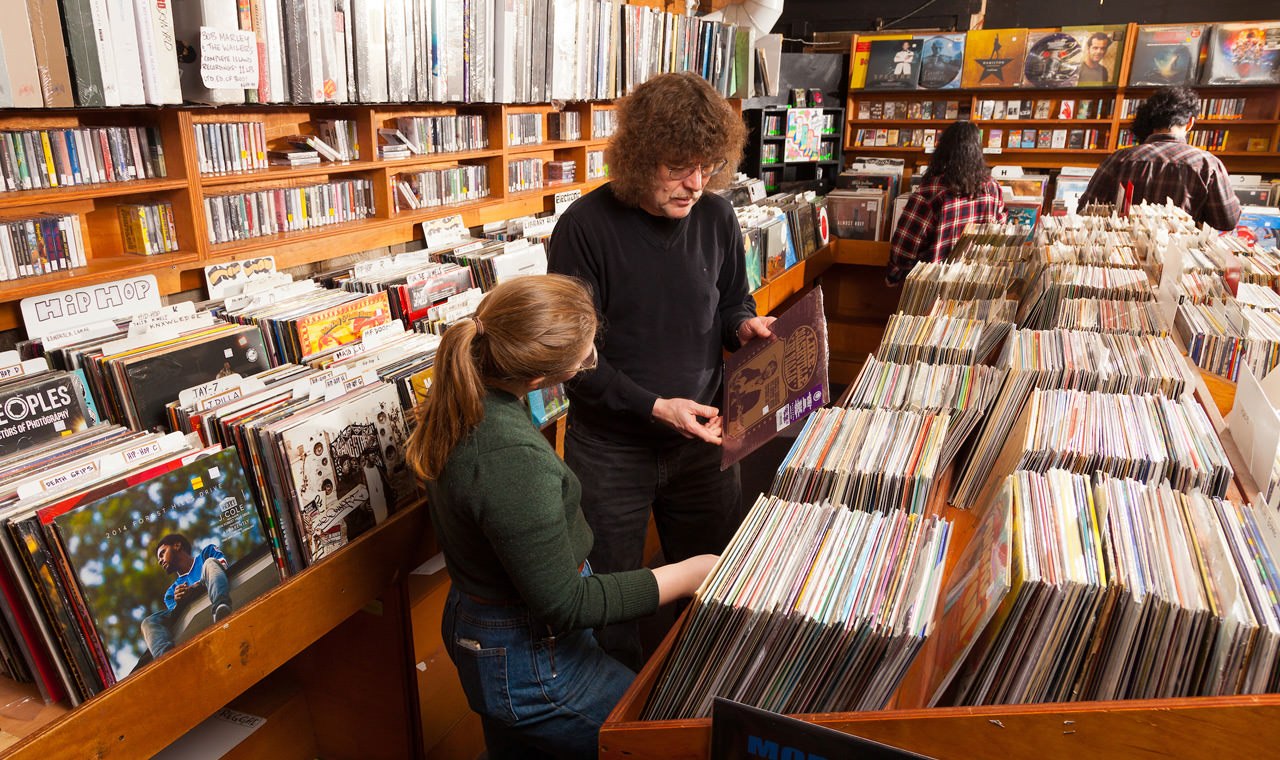
First There Was the Radio
Like every other superhero, Currier has an origin story. By his account, he was “16 and three-quarters” when he got his first car, which had a radio. He tuned in to Vancouver, Washington’s KVAN station, whose eclectic rotation would be the catalyst for Currier’s genre-spanning taste.
“That radio just opened up a whole new thing for me as far as what [I thought was] available in music, what you could do in music,” he tells me. “It hit me like a brick.”
A couple of months after he got his first car, Currier saw his first live show: Leon Russell and the Shelter People. Two weeks later, he applied for a job at a record store, DJ’s Sound City. And so the legend began.
“I was lucky they hired me, because I didn’t have the music knowledge you needed to work in a record store,” he says. “But they could see that I had the passion for music, and they gave me the opportunity.”
“Terry Currier and Music Millennium were incredibly important in the history of Pink Martini. They championed the band when no one else knew who the hell we were.”
– Thomas Lauderdale (Pink Martini)
In the following year, Currier made up for his lack of knowledge. He bought 665 albums and took any opportunity he could to learn more. His shop closed at 9 p.m., so to further his education, Currier often found himself making his way over to Music Millennium, which stayed open until 10 p.m.
A little more than a decade later, DJ’s was sold to a larger chain. Currier left that gig and landed at Music Millennium, this time with the industry knowledge and marketing savvy to match his passion.
He went all in. As the store’s new manager, he helped to resurrect Music Millennium from debt and build its reputation as Portland’s premier music hub. In 1989, to celebrate the 20th anniversary, he proposed an idea that at the time seemed a little unusual: 20 straight days of live music in the store. The concept proved such a hit with local fans that the store extended it to 40 straight days, thus birthing the concept of the in-store performance, now a staple practice in record shops across the country.
Since that time, Currier estimates that Music Millennium has hosted between 4,000 and 5,000 in-store appearances, helping to cement Portland’s reputation as one of the nation’s hubs for independent music.
Currier also has directly contributed to the local scene through his two bootstrapped label ventures: Burnside Records and Sideburn Records. With these two imprints, he has released more than 60 titles of varying genres, with many of the artists hailing from the Pacific Northwest.
“[Terry Currier] is a landmark and a legend. I’ve spent so much money in this record store … and he has the hippest one in the United States.”
– Curtis Salgado
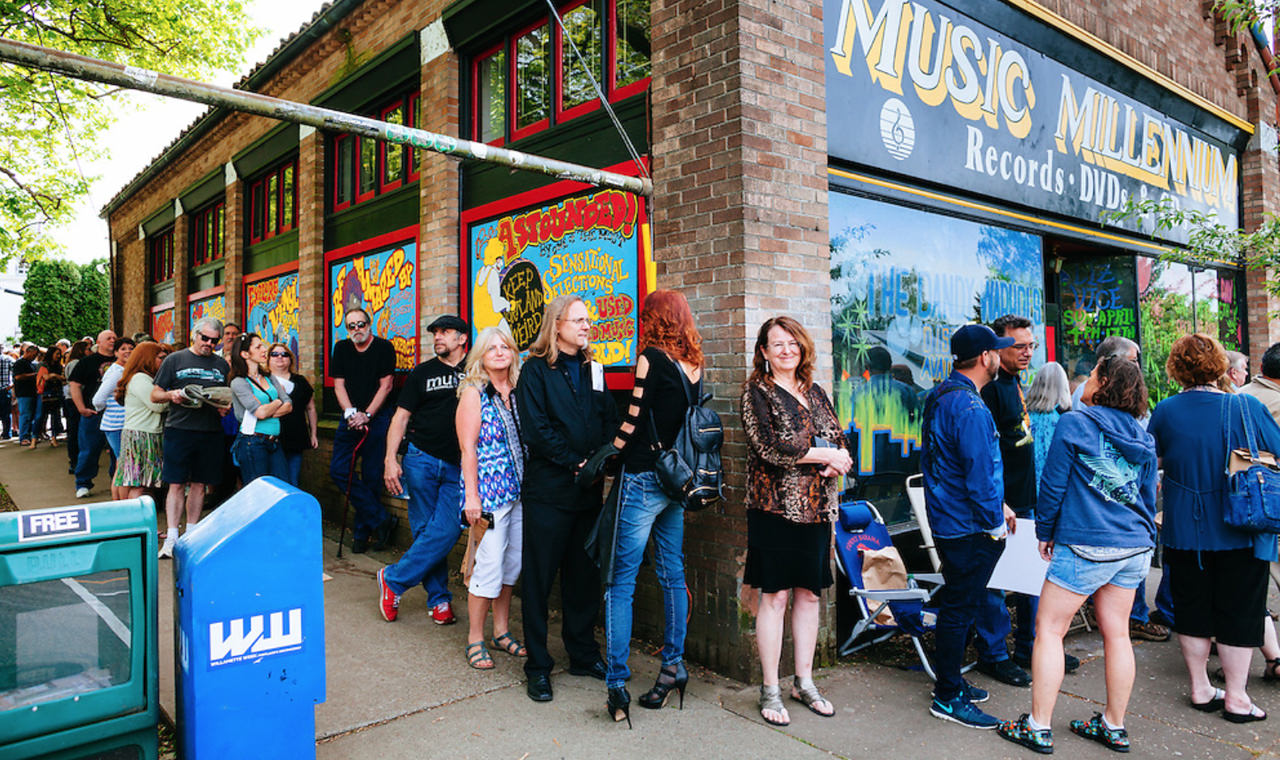
Keeping the Flame Alive
Currier is not only an icon in Portland. Retailers across America celebrate him for his work to preserve tangible spaces where fans can discover new music. Most notably, Currier is credited with helping to found Record Store Day in 2007, which, as odd as it sounds, grew out of his public feud with millionaire country star Garth Brooks.
Currier famously barbecued Brooks’ “In Pieces” CD after Brooks didn’t want the album sold in stores that also stocked used records — because Brooks thought he deserved secondary royalties from those sales. The barbecue spread like a wildfire. Currier helped store owners in other cities organize more Brooks barbecues, which eventually led to Currier forming the Coalition of Independent Music Stores in 1995. That move spawned two other coalitions, and in 2007 the three coalitions would band together to found Record Store Day.
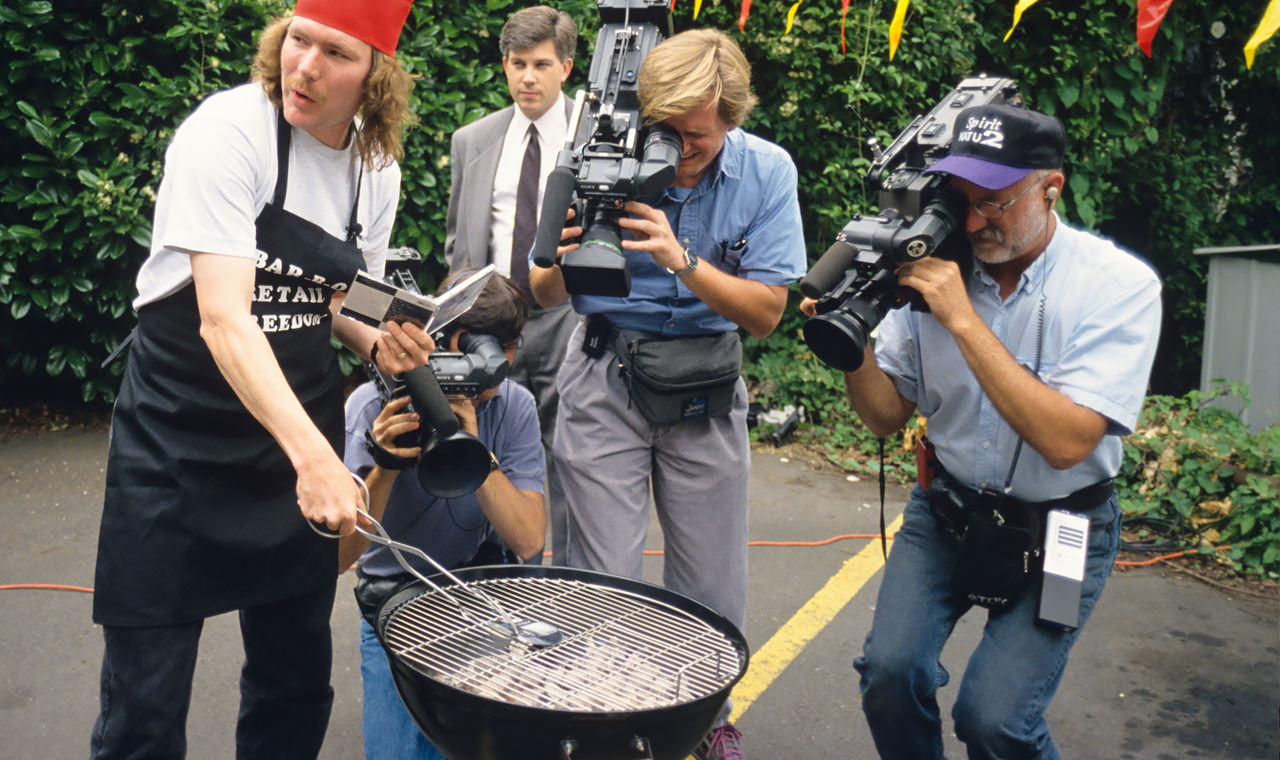
“The media had already pretty much pictured us as an industry that was going to be gone. They kept doing stories on the demise of record stores,” he explains. “So we decided to go to the [recording] industry and see if they would give us a compelling product on vinyl.”
These exclusive, limited-edition releases have rejuvenated sales for independent record stores, and it’s transformed into a holiday for scores of music lovers, collectors and completists across the country.
Ten years after Record Store Day launched, the City of Portland officially showed its appreciation for what Mayor Ted Wheeler described as “tireless, unrivaled support and assistance to all facets of the Portland music community.” Mayor Wheeler issued a proclamation that Terry Currier Day would be celebrated on August 12.
“It was a pretty surreal experience. It’s not anything I would have ever thought in my lifetime would happen to me,” Currier says. “It was an honor to have the city recognize what I had done over the years. I do everything I do for the music and the people of this city.”
With no signs of stopping anytime soon, Currier has even more planned for Record Store Day 2018 and hopes to continue to spread the unifying message of music for years to come.
“There seems to be a lot of tension in the world,” he says. “But music is that one thing that just breaks down a lot of those barriers and really puts people on the same plane — because it’s speaking to everybody on the same level.”
